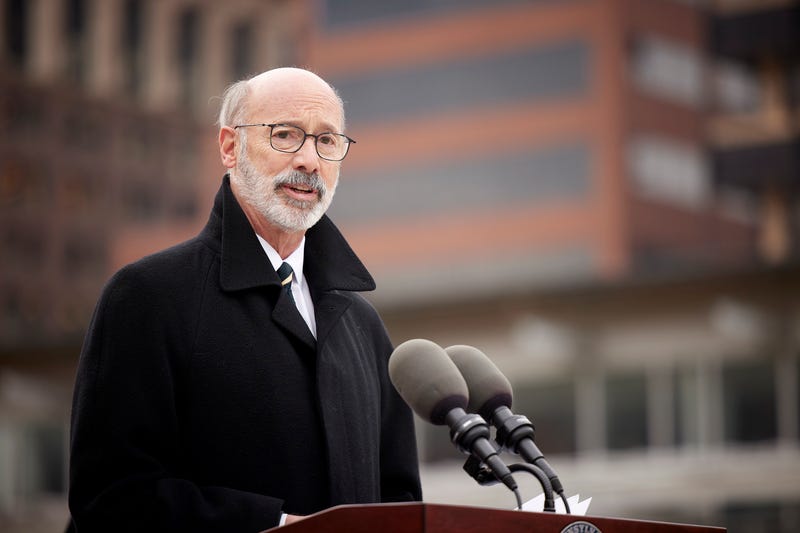
Governor Tom Wolf delivered his final budget address Tuesday, delivering a $43.7 million proposal to legislators.
It would push state spending past $43 million for the first time, and make major investments into education, job training and criminal justice.
He was on with the NewsRadio KDKA Morning Show and told Kevin Battle that he can afford to do the things he came to Harrisburg to do because of the financial landscape that’s currently present.
“I think we were one of the least credit-worthy states in the country. We had $200,000, 20 minutes worth, in our rainy-day fund. We now have close to $3-billion in our rainy-day fund. We had a $3-billion surplus last year and will have a bigger surplus, I think, this year. My budget has a surplus in it.”
Wolf struck the same optimistic tone in Harrisburg Tuesday, telling the General Assembly these are "days of opportunity" in Pennsylvania.
"We're no longer digging out of a hole," he said in his address. "We're ready to build, and this year's budget does exactly that, making new investments that will build a stronger and brighter future for Pennsylvania families."
Education is one of Wolf's priorities in the new budget, requesting a nearly $2 billion investment. He called for state legislators to approve funding for equitable public school funding, known as the Fair Funding Formula.
"We can afford to invest a whole lot more in the fair funding formula without raising one penny in state taxes, and we can afford to do it without asking any school district, anywhere in Pennsylvania, to sacrifice one penny in state funding," he said. "Let's not waste this opportunity. Let's not force our successors in public office, not to mention our kids and grandkids, to pay the price for our failure to act."
Wolf also continued his push for an increase in minimum wage to $12 an hour by July 1.
Republican reaction was largely critical of the budget's price tag.
State Rep. Valerie Gaydos (R-Allegheny) was among those questioning the price.
"Paying our bills and investing in Pennsylvania’s future is an admirable goal, but doing so at the cost of nearly $17 million per day in new spending is irresponsible and extremely unfair to many residents of our state who have been disproportionately burdened by the COVID-19 pandemic and our severe inflationary times," she said in a statement."
House and Senate GOP leaders say the pandemic money and state reserves should be used conservatively to prevent deficits.
Be sure to follow KDKA NewsRadio on Facebook and Twitter for the latest news and updates.
